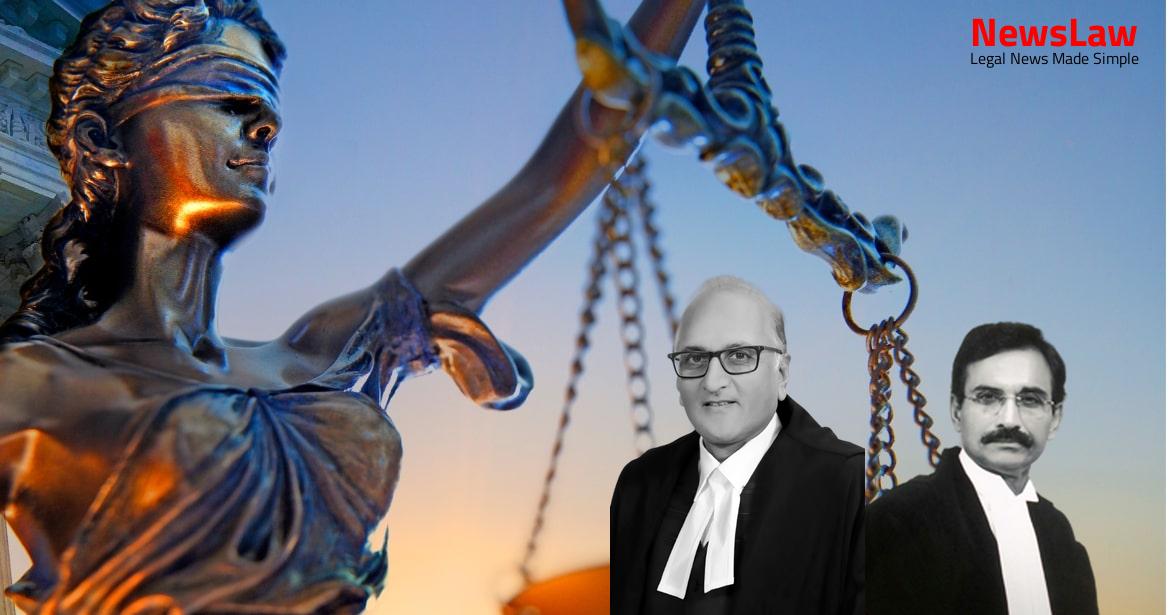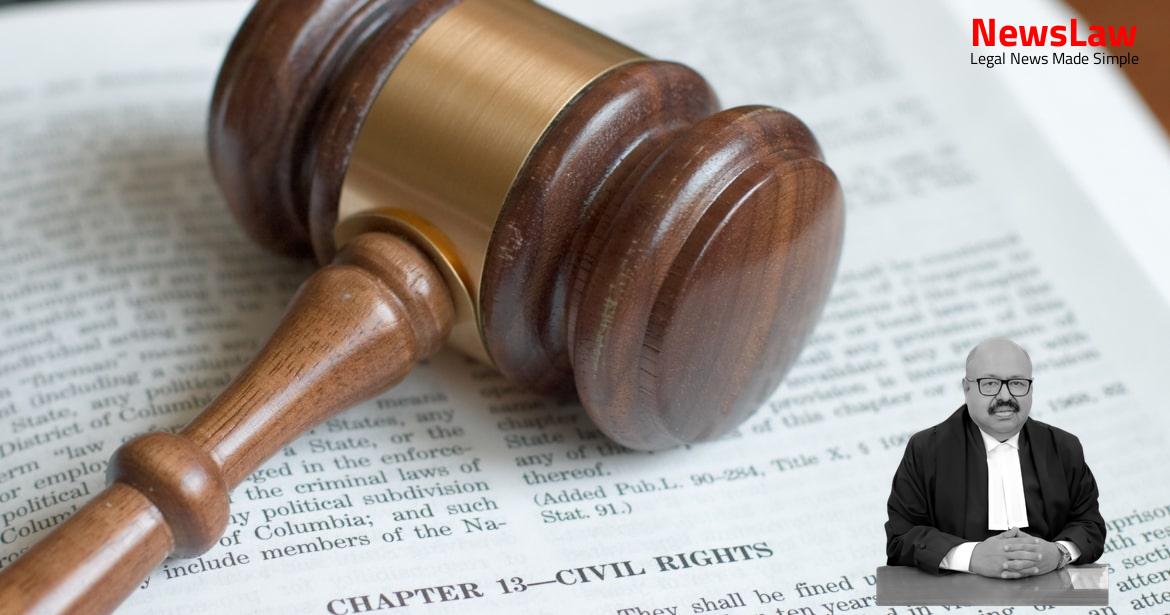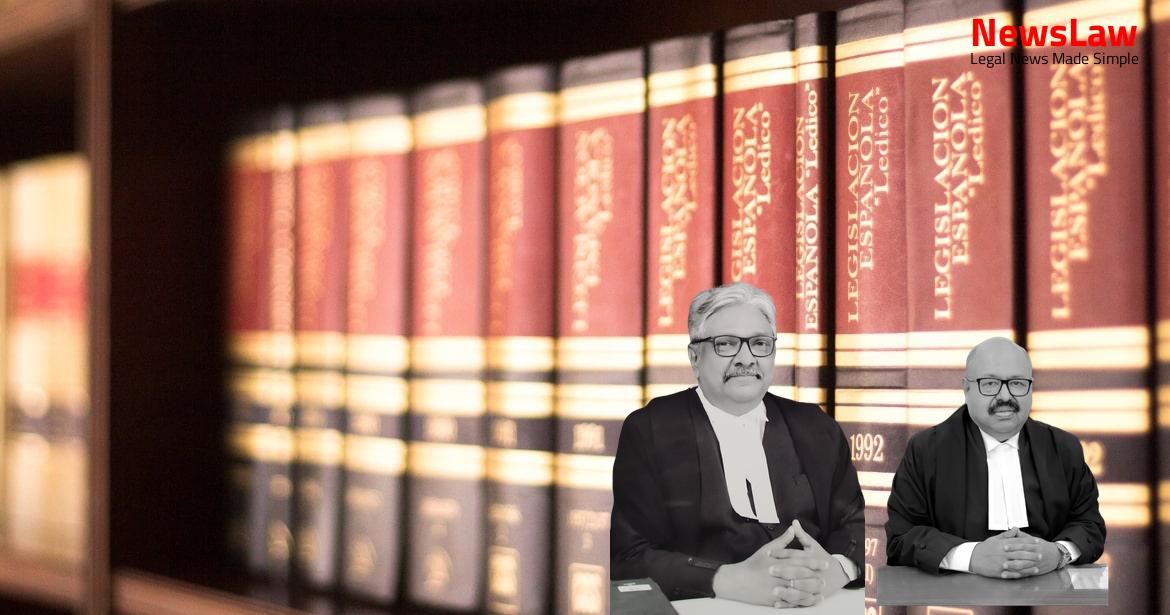In a recent legal case, the court conducted a detailed analysis on incumbent tenure limits, highlighting the importance of legal interpretations in maintaining judicial transparency and accountability. The case delves into the complexities of tenure limits for incumbents, emphasizing the significance of understanding and abiding by legal provisions and legislative frameworks.
Facts
- The judgment in Rojer Mathew by the five judge Constitution Bench was delivered on 13.11.2019.
- The judgment pronounced upon the validity of the 2017 Rules and quashed them.
Also Read: Legal Analysis on Seniority Fixation in Contempt Petitions
Arguments
- The applicant seeks extension of the term of the incumbent Chairperson of the board based on the appointment under section 89A of the TM Act.
- The judgement in Rojer Mathew stated that appointments made to the board before the 2020 Rules were governed by the parent enactment, the TM Act.
- The applicant argues that the outer limit of the Chairperson’s tenure is 70 years under the TM Act, overriding the age limit of 65 years in Section 86.
- Section 89A supersedes Section 86, indicating that the Finance Act provisions apply to conditions of service and tenure.
- The Rules framed in 2017 were upheld by Rojer Mathew protecting sitting members, including the present incumbent.
- The incumbent can continue despite reaching 65 years based on the Madras Bar Association ruling extending the age limit to 70 years.
- Orders by the court during the case in 2020 extended tenures of all members and chairpersons till the final judgment date.
- Continuity is crucial for the board’s workload, emphasizing the need for a qualified chairperson.
- Section 84(2) requires a judicial member on the board, which is currently lacking.
- The Finance Act 2017 (Section 184) dictates the term and conditions of service for Chairpersons and members.
- Opposition from third parties was based on the initial appointment indicating a term till 21 September 2019, and the perceived limitations of Section 89A.
- Section 161 of the Finance Act introduced Section 89A to the TM Act, governing appointments to the board based on Section 184 of the Finance Act.
Also Read: Vertical Mobility and Selection Process in Police Department
Analysis
- Section 84 of the TM Act establishes the composition of the board with a chairperson, a vice chairperson, and members.
- The rules regarding qualifications, terms of office, salaries, and age limits for the chairperson and members are specified in Section 184.
- The Central Government has the authority to make rules regarding the qualifications and conditions of service for the board members.
- As per the Rojer Mathew case, the 2017 Rules were deemed unsustainable and quashed, with a directive to frame new rules by the Central Government.
- Appointments to the Tribunal/Appellate Tribunal will be governed by pre-2017 statutes until new rules are framed.
- Sections 183 and 184 of the Finance Act outline the conditions of service for the chairperson and members of tribunals and appellate tribunals.
- Section 84(2) specifies the composition of a bench with one Judicial Member and one Technical Member.
- Section 84(3) allows the chairperson to fulfill the functions of a member in case of absence, and enables the transfer of members between benches.
- In the absence of a chairperson, the vice-chairperson or the senior-most member can act as the chairperson as per Section 87 of the TM Act.
- The interim orders and clarifications in Kudrat Sandhu directed a status quo with respect to tenure and age limits for members and chairpersons of various tribunals.
- The final judgment in Rojer Mathew could not be directly applied to the case at hand due to specific circumstances.
- The maximum tenure for members and chairpersons was stipulated in the parent enactments, aligning with the parliamentary intention for legislative uniformity in tenure limits and maximum age.
- The tenure limits for the present incumbents ended on 21.09.2019 according to the rules of 2017.
- The Board’s functioning without a judicial member, wherein the applicant’s argument is refuted due to the legal qualifications of the technical members.
- The changes in tenure and age limits were brought about not only through the Schedule of the Finance Act 2017 but also through substantive provisions in Sections 156 to 182.
- The order on 20.03.2018 specified a tenure of five years for Chairpersons and Members of all tribunals, or the maximum age under the old Acts and Rules.
- The argument that the incumbent chairperson continued to remain in office due to Rojer Mathew was deemed insubstantial as the tenure had ended on 21.09.2019.
- The Finance Act outlined potential maximum age and tenure limits, with Section 89A being part of the entire legislative design.
- The 2020 Rules did not specify the maximum tenure but confined it to four years, while Section 85 stipulated qualifications for the post of chairperson or vice-chairperson.
- Applicant is not eligible for relief
- Court holds that no relief can be granted to the applicant
Also Read: Interpretation of Section 80-IA Deductions
Decision
- The application is dismissed
- There shall be no order on costs
Case Title: THE INTERNATIONAL ASSOCIATION FOR PROTECTION OF INTELLECTUAL PROPERTY (INDIA GROUP) Vs. UNION OF INDIA (2021 INSC 83)
Case Number: MA-002219 / 2020



